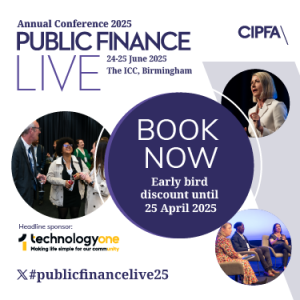By Maria Donoghue-Mills
15th May 2009
Community problems usually require local answers. But good practice is rarely passed on. However, the Can Do programme aims to share valuable knowledge through a network of people on the ground
Running community services at a local level allows them to be much more effective, yet paradoxically it also creates some missed opportunities. Difficult social issues are being tackled by volunteers and small community groups all over the country, but valuable experiences are rarely passed on.
There have been previous attempts to multiply effective community projects. But at Novas Scarman social justice company, we have developed the Can Do three-year initiative. This aims to help community activists learn from each other and adapt successful projects for their area. This approach is subtly and crucially different. It’s essential that we don’t attempt to replicate projects in other areas.
Experience has taught us that top-down approaches don’t work effectively because volunteers aren’t motivated by copying others. They need to come up with the answers themselves. Successful results are created when people use their understanding of their own community to create initiatives that fit the local culture.
This approach was given extra recognition when Communities Secretary Hazel Blears recently said: ‘Where citizens are given control over their affairs, they make good decisions, balance competing demands in intelligent ways, act with fairness and compassion and work together to solve problems.’
This is correct, and it could even be said that without this local influence you end up trying to solve community problems via consultants. In this case, all the money and knowledge flows right back out of the area when the budget runs out, leaving the community even more disadvantaged and frustrated.
What people really need is support with the process of creating effective community projects that they can run themselves. This is where our grassroots experience comes into play. We operate a UK-wide network of community support services offering bespoke training in skills such as finance and fundraising. This has been a central part of our work for more than a decade. Can Do guidance and training materials will focus on passing on good practice and effective methods that are nationally applicable.
Local people make things happen when they develop the right skills and Can Do is also about training more volunteers. Community development training brings together all the elements needed by those embarking on the first steps of community activity. This mix of competencies covers management, organisational development, community leadership, mentoring and counselling.
We have started working with community groups and their regional Novas Scarman workers to look at this. One option is to create accredited training opportunities to give recognition to community leadership.
We also hope to help community activism become more sustainable. Too much reliance on the same few individuals can cause a group to collapse if they move from an area or change the focus of their lives.
We need to help groups spread their knowledge and also create support structures for community leaders, as it can be a lonely crusade at times. Peer learning among people tackling similar issues has had great results through our local offices and we plan to extend this nationally.
We will get new community groups to share skills, experience and knowledge through workshops and conferences. This will be supported by technology that gives easy access to successful practice in both online and electronic form.
We are also aiming for partnership structures to be developed. Major agency representatives, especially councillors, will be helped to work more closely with communities.
Some form of training around social entrepreneurship is also likely to play a part.
Many of the groups we work with are finding ways to supplement grant funding with income-generating activities. This alternative stream of revenue makes everything much more self-sufficient and also allows individuals to build up useful employment skills.
The Can Do programme was one of 21 successful bids out of 160 national applications to win backing from the Department for Communities and Local Government’s £9m Community Empowerment Fund. The exact form of the programme has yet to take shape as many of the answers need to come from the people on the ground. We are grateful to the DCLG for the opportunity to build skills and capacity.
Ultimately, Can Do is about helping those who are already fighting for their communities and equipping the next generation of activists. We are privileged to continue to work with these remarkable people and look forward to providing the tools and support they need.
Maria Donoghue-Mills is group chief executive of Novas Scarman
















